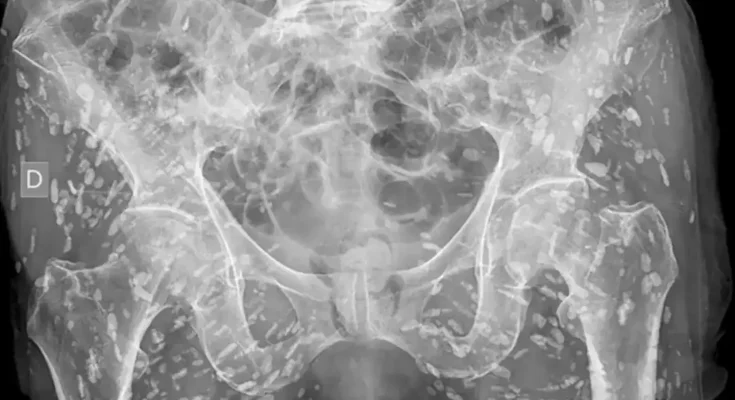An x-ray image has gone viral this week, showing what a parasite actually looks like once embedded into the soft tissue of the human body.
And let’s just say, it’s definitely not one for the weak-stomached.
.png)
The picture was shared by an ER doctor (X/@em_resus)
The image in question was first shared on social media by emergency room medic Sam Ghali, where he described it as one of the ‘most insane’ body scans he’d observed in his career.
The gut-wrenching x-ray is of the lower-half of one patient’s body, including their stomach, buttocks, and upper-thighs, all of which appear to be littered with thousands of small, unusually-shaped beings.
Writing online, Dr Ghali described the condition as ‘cysticercosis’, otherwise known as infestation caused by the ‘pork tapeworm’.
He explained: “Essentially, these are larval cysts of taenia solium”, eggs which enters the body when undercooked pork.
These cysts subsequently develop into adult tapeworms, which reside within an individual’s gut for a period between 5 to 12 weeks.
He explained, however, that cysticercosis doesn’t happen to the original pork-eater, but another unfortunate individual.
“The life cycle begins with a human consuming raw or undercooked pig,” the social media-using medic explained.
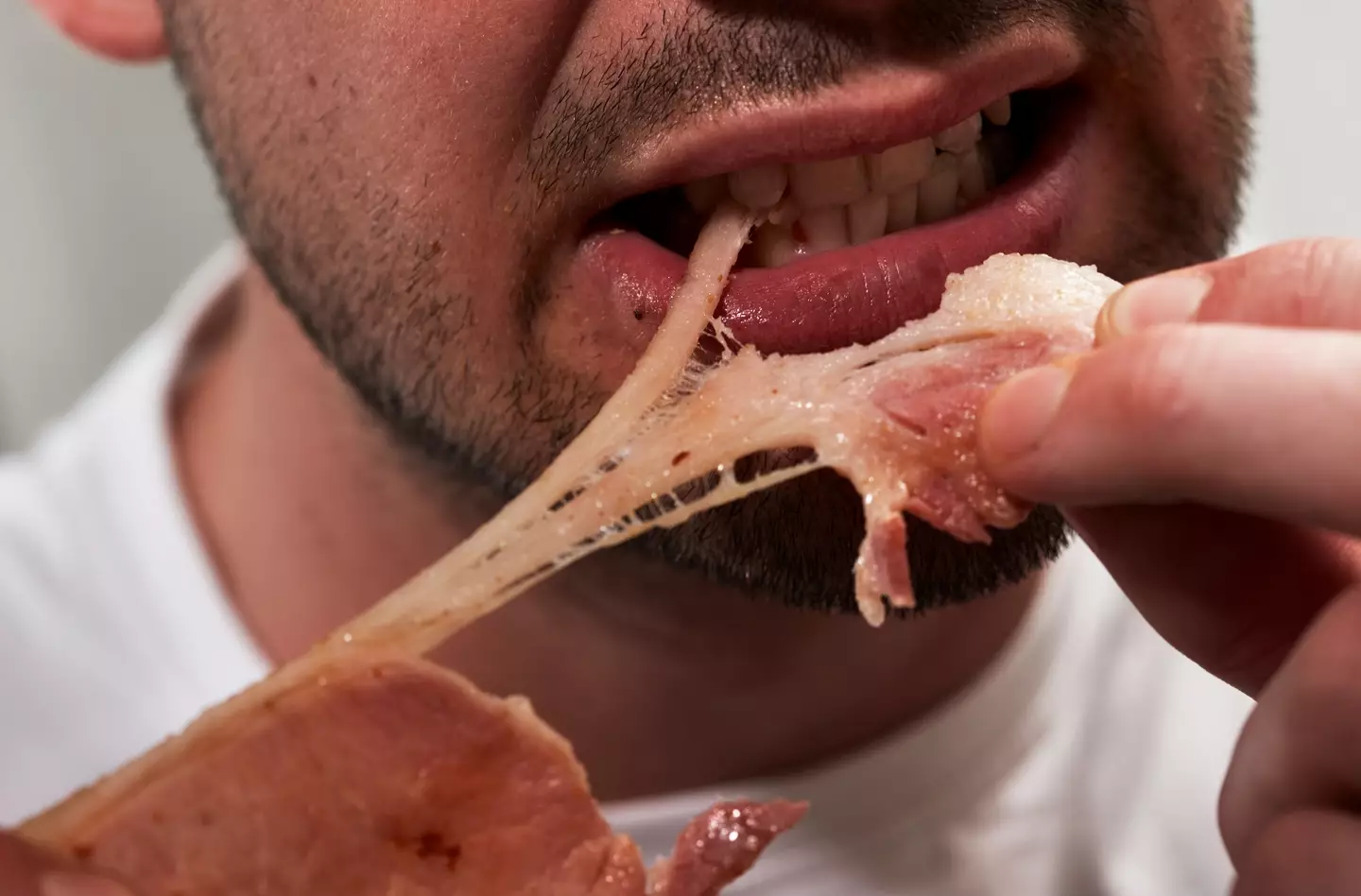
The infestation is caused by someone ingesting raw pork (Getty Stock Images)
“And then that person becomes infected with the worms in their GI tract and passes the eggs along to another unfortunate human who then consumes them.”
The process of cysticercosis then materialises when the individual that ate the undercooked pork – and is therefore, infected – doesn’t wash their hands property after releasing fecal matter.
When these eggs are ingested via fecal-oral transmission to another person, cysticercosis develops for them.
These cysts have the ability to travel anywhere in the body, and in case of the patient in the x-ray, it appears as though they’ve infiltrated muscles around the hips and legs.
“What happens is they lodge here, and over time, they calcify,” Dr Ghali went on. “And that gives them this classic appearance known as rice grain calcification.”
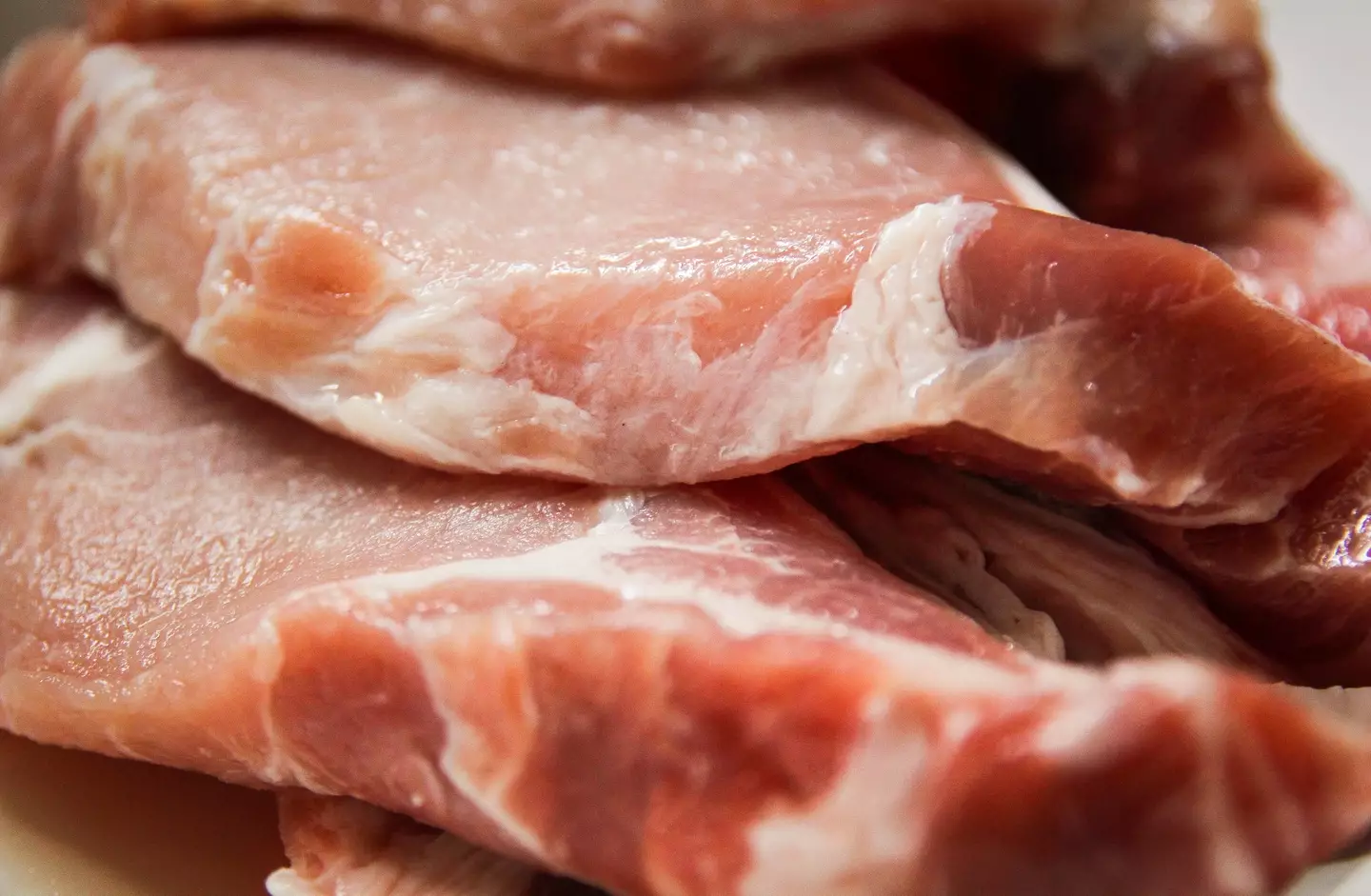
The infestation can be fatal (Kinga Krzeminska/Getty)
Despite appearances, he added that such an infestation poses no real physical danger in this realm of the body, revealing that the patient only attended the emergency room after suffering a broken bone.
There are some ways in which cysticercosis can be deadly, however – especially if the cysts travel to the brain, where it can cause symptoms such as confusion, headaches, seizures, and even death.
Statistics recorded by the World Health Organisation allege that around 2.8 million people are infected with this time of parasite per year, with the most common cases emerging across Asia, South America and Eastern Europe.
“Do your best to keep clean, always wash your hands, and never, ever eat raw or undercooked pork,” Ghali recommended.
Featured Image Credit: X/@em_resus
Topics: Health, Life, Real Life, True Life, News, Food and Drink
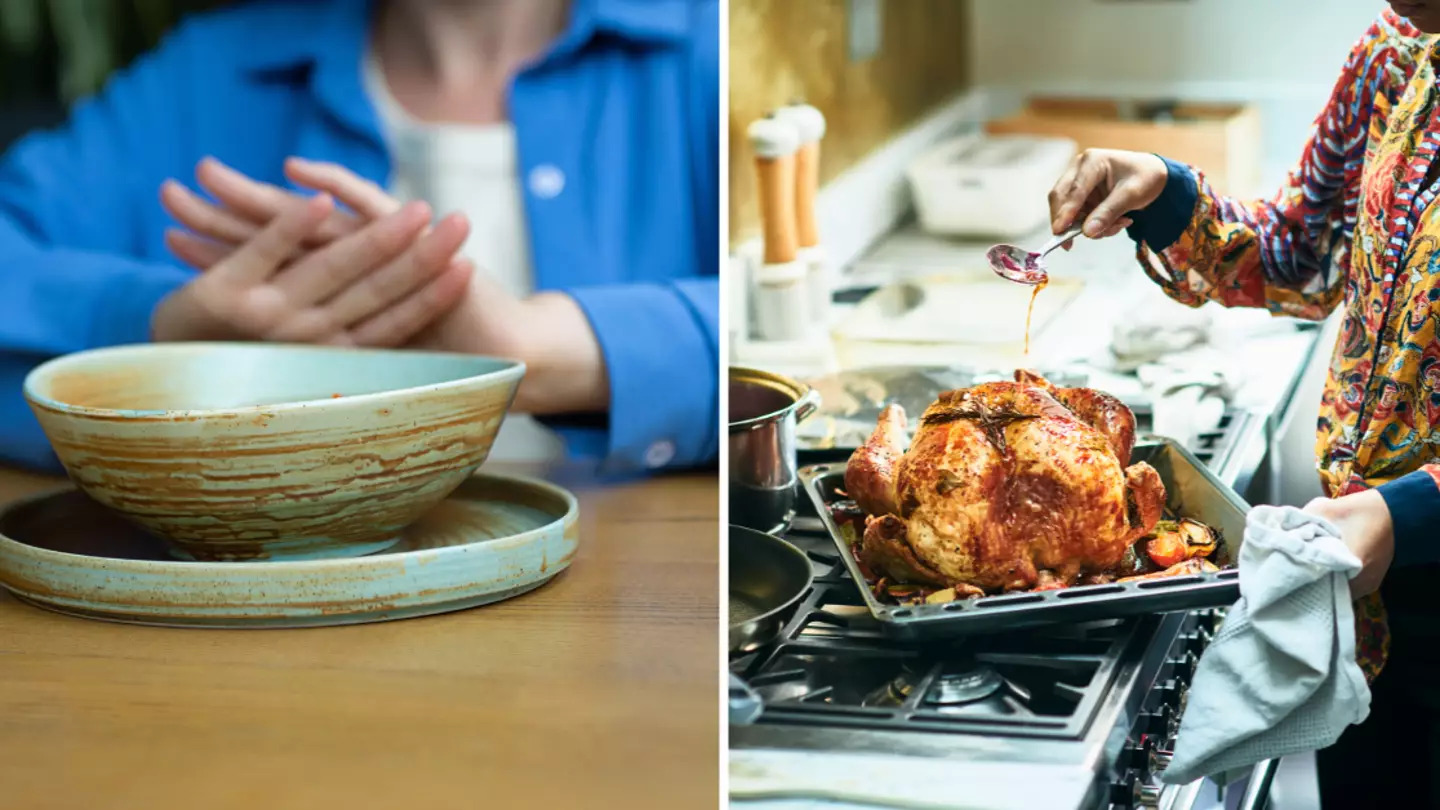
With an especially heightened focus on feasting, the festive season can prove difficult for those suffering with, or who are in recovery from, an eating disorder (ED).
With that in mind, one charity worker is using his platform to advise the friends and families of those might be suffering how best to navigate this food-friendly time of year, including warning them of what not to say and one question that should not be asked.
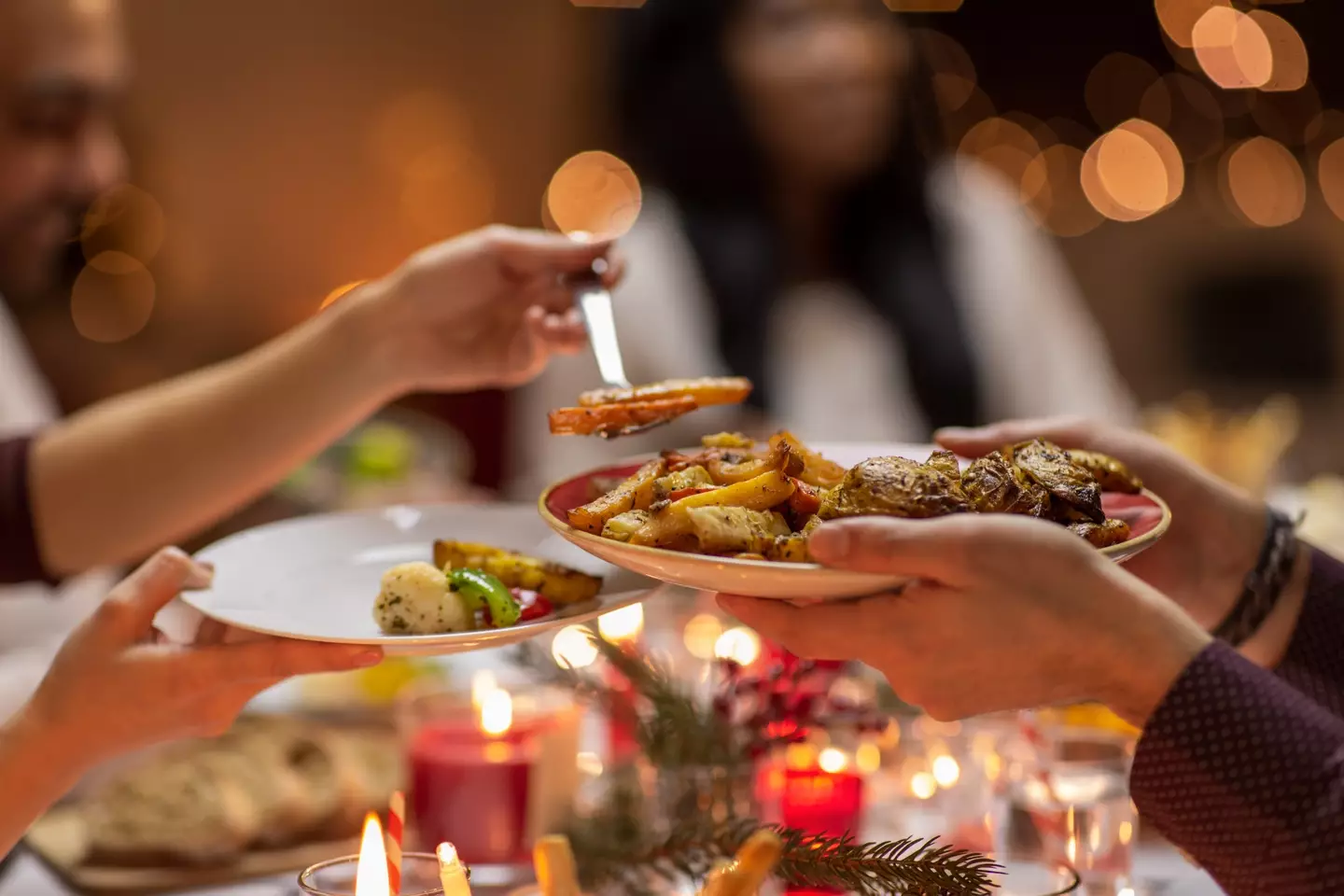
Christmas can be a hard time for ED patients/survivors (dolgachov/Getty)
What are eating disorders?
According to the NHS, EDs are mental health conditions, whereby an individual uses the control of food as a means of coping.
These disorders can present themselves in various different ways, whether that be by over-eating, refusing to eat, or inducing sickness so as not to digest meals.
The most common types of ED in the UK are anorexia nervosa and bulimia.
The former describes not eating enough food or over-exercising as a means of ‘losing weight’, while the latter describes taking drastic action – such as making yourself sick – as a means of avoiding putting any weight on.
In the case of both of these conditions, the most ‘tell-tale’ indicators are drastic weight loss, lying about food consumption, avoiding eating with company, cutting food very small or eating slowly, and regularly going to the bathroom shortly after eating.
As we say, EDs can also emerge in a different way, with binge eating disorder (BED) – which describes eating large portions of food until you feel painfully full – being another common condition in the UK.

Most eating disorder cases can be handled with treatment (Olga Yefimova/Getty)
The pressures of Christmas
Thankfully, with the right intervention, most people can recovery from an ED – but that doesn’t mean it’s a walk in the park.
And as any past/current patient will tell you, it’s often the most sociable of occasions – like birthdays and Christmas – that come with the biggest amount of food-based pressure.
Tom Quinn – who works as Director of External Affair at Beat, one of the UK’s leading ED charities – explained this predicament.
“Pressure to eat large amounts combined with the emphasis on socialising can cause lots of anxiety, especially for people who are hiding their eating or who do not talk openly about their illness,” he told Tyla.
“It can be hard to eat around relatives or people they don’t see frequently, who might not know about their eating disorder or might not be very sensitive to their needs.”
Quinn went on to explain that increased talk about ‘dieting’ or ‘compensating for eating more food on the run up to Christmas’ could also be triggering for ED patients/survivors.

Quinn suggests a post-meal distraction, like games (10’000 Hours/Getty)
It is also likely that their meal times and exercise routines changing due to schedules and social occasions could prove challenging, and the fact that their support networks may be unavailable over Christmas could be playing on their mind.
Expert advice
As we say, however, the festive season doesn’t have to mean doom and gloom for patients, those in recovery or their loved ones – provided that proper caution is taken.
Quinn began by emphasising transparency about the part that food will play in Christmas plans.
“Make sure to organise Christmas activities that do not focus on food,” he went on. “For instance a family game, putting up Christmas decorations, watching a film.
“Distractions during mealtimes, like having music on, can help take the focus away from food. After meals, clear food away, move away from the table if possible and find activities that focus on something else.”
Asked what advice he’d give to the families of someone battling an ED at this time of year, he went on to emphasise that relatives should be pre-warned not to ask questions or make comments about what the patient/survivor has eaten.

It’s important not to focus on the amount of food being consumed (shironosov/Getty)
“Even praise can be upsetting, for instance ‘Haven’t you done well eating your dinner?'”, he added. “Steer the conversation away from dieting, anyone’s weight, appearance, exercise or food intake.
“Understand that they may need space or to take themselves away for periods of time. Try and plan in some time where fewer people will be around, to give them time to recharge.”
If you’re worried about your own or someone else’s health, you can contact Beat, the UK’s eating disorder charity on 0808 801 0677 or beateatingdisorders.org.uk.
